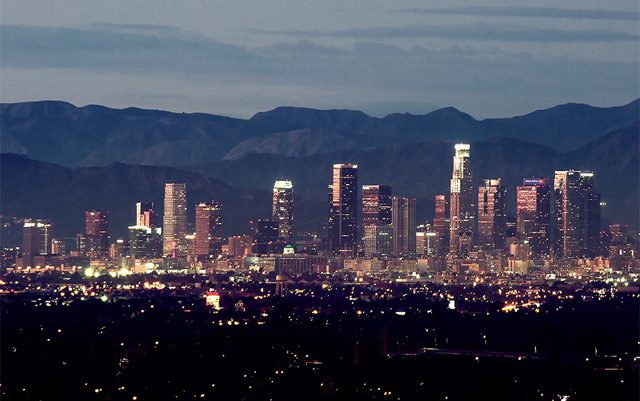Recreational marijuana sales became legal in the state of California on January 1st, and many towns and cities in the state were ready to go within the first week of the year. Other cities lagged behind, big cities like San Francisco. But the most notable exception when it came to cities without functioning adult-use cannabis industries at the beginning of the year is also the largest city to come under the banner of legal recreational marijuana: Los Angeles.
With nearly 4 million people within the city limits, Los Angeles is by far the largest single potential market for cannabis sales in the U.S., an especially impressive number when you compare it to the 5.5 million people that constitute the population of the entire state of Colorado.
The very first recreational marijuana sales licenses issued in the city were finally given to several retail shops in L.A. on January 19th. “It’s super important for the state and for the city of Los Angeles to show that we have legal recreational sales,” said Jerred Kiloh, owner of The Higher Path dispensary in Sherman Oaks, one of the first outlets to be licensed. “It’s what people voted for and it will really set apart those businesses that are operating legally and paying taxes.”
While cities like Santa Ana and West Hollywood had licensed legal adult-use cannabis shops weeks before, Los Angeles trailed behind, approving about a dozen cannabis sellers on January 13th.
“We are making an unprecedented transition to legal adult use cannabis here in Los Angeles,” Cat Packer, executive director of the Los Angeles Department of Cannabis Regulation, said in a statement.
“I am pleased that we have taken this historic step forward,” she added.
Historic indeed. Retail shops, like the newest one opened up by hip-hop star Berner, are garnering press attention as the city works to allow more shops to open.
As of this writing, there are 98 businesses with “temporary approval to sell medicinal or adult-use cannabis and cannabis products”, and hundreds of medical marijuana dispensaries that operate without a license in L.A. The medical marijuana dispensaries that are regulated by the city are licensed under Proposition D, an ordinance passed in 2013 that provides “limited immunity to medical marijuana businesses that meet specified requirements.” While the city has shut down hundreds of dispensaries that don’t qualify under Prop D, several hundred still remain, with new ones popping up in different locations all the time.
For now, the only shops being considered for recreational licenses are established, licensed medical marijuana dispensaries; they are being awarded temporary approval in an attempt to get the industry up and running while they wait for final approval from the city.
Some of the Prop D-licensed dispensary owners are taking a wait-and-see approach before they apply for a recreational license. “We have filed only for medicinal. I’m going to wait and see how things play out in the city and then apply for recreational,” said David Slocum of the medical cannabis dispensary Mother Nature’s Remedy.
Anyone who has followed the Los Angeles medical marijuana industry over the last decade or so knows just how crazy things have been. Through several attempts by the city to regulate dispensaries, owners have had to deal with constant change, never knowing when they would have to close and leave their patients without their medicine.
The problem of restricted supply should be alleviated by the introduction of adult-use sales, and even more so when final regulations are enacted for recreational-only shops in the state. Maybe one day cannabis consumers – of which there are likely hundreds of thousands in Los Angeles alone – will not have to worry about where to get products legally. They won’t have to rely on the black market. They’ll be able to go to a store relatively close to where they live and buy what they want, like adults can just with just about every other product imaginable.






